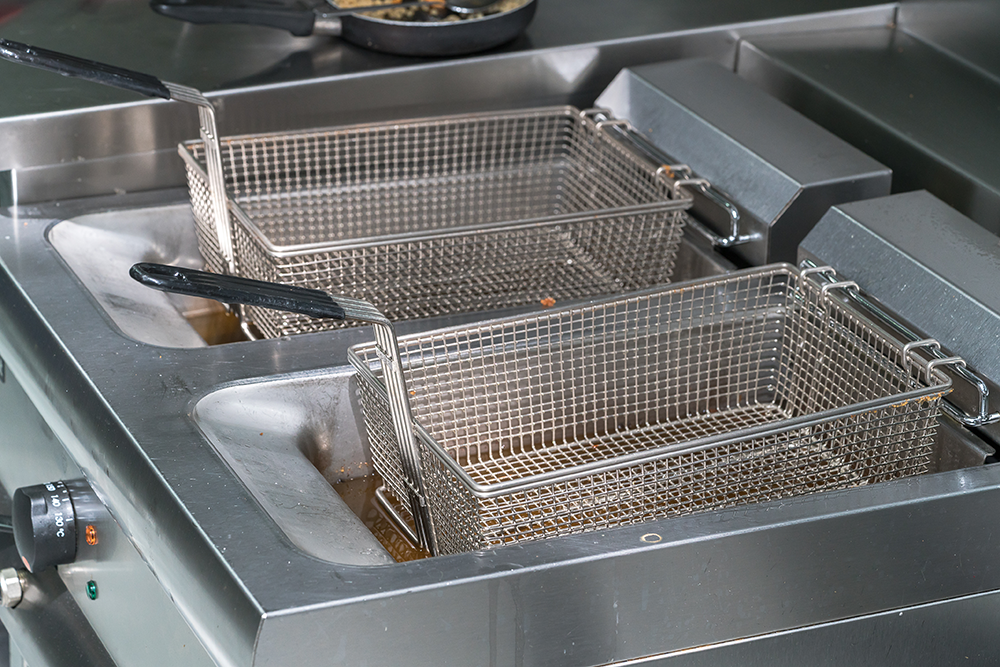By Arslan Hassan, Contributor
Running a restaurant while ensuring everything is in top-notch condition is no easy task. There’s no doubt that the food industry is extremely competitive and brutal, especially in terms of quality, taste, and, service. This means that restaurateurs can’t risk having mess-ups, equipment failure or shortage of supplies during open hours or any point of their business days.
Believe it or not, your kitchen’s success majorly relies on the maintenance of your appliances and equipment since it’s responsible for the preparation and storage of all your food items. Whether you’re just starting off or have been in the business for a while, jogging your memory regarding the fundamentals of good restaurant equipment maintenance can come in handy at any point.
Here are some of the best practices in the restaurant industry in regard to keeping your appliances functioning seamlessly.
Train Your Restaurant’s Employees How to Handle Equipment Appropriately
Having a reliable group of kitchen hands is vital for the smooth functioning of any well-established kitchen. This can only be achieved after proper and effective training of employees on how to handle, clean, and maintain equipment and other kitchen etiquettes. When employees are confident and familiar with supervising kitchen appliances, they’re able to care for them efficiently and sustain their life. They can easily spot damages in order to get equipment fixed before major catastrophes happen.
Also, instructing staff to follow chemical instructions is important to avoid any damaging of appliances. Often time we misinterpret the use of cleaning agents as multi-purpose which leads to accidental destruction of equipment. This can be dodged by following guidelines on solutions before proceeding to use them.
Schedule Regular Maintenance Appointments with a Professional
While self-maintenance on a daily basis is sufficient, in the long run having a professional check on your appliances and test for issues saves your kitchen from future disasters or equipment malfunctioning. Nearly all fire hazards are caused due to insufficient maintenance and equipment breakdown, which results in loss of expensive equipment and supplies, troubled employees, and bad publicity.
It’s advised not to fix machinery or instruments yourself as it might cause greater damage and lead to more costly repairs. Items that are under warranty can usually be fixed free of charge or at a cheaper cost, far more cost-effective than purchasing new gear.
Not only is this beneficial to maintenance issues, but it also reduces the chances of health risks that occur commonly in kitchens due to ignorance. Regular maintenance means sanitization and disinfection of pantry necessities, thus improving the health of your employees and producing supreme quality cuisine.
Perform Daily Fryer Inspection
Fryers are meant to be checked daily as prescribed by the manufacturer’s instructions to avoid any kitchen hazards. Monitor your fryer every three to six weeks for any possible gas leaks, and clean combustion fans regularly so there aren’t any foreseeable breakdowns in the unit. Kitchens get stuffy real quick due to the frequent use of deep fryers, so make sure your fans are clean and working properly.
Additionally, regular deep-frying leads to the accumulation of debris and carbon deposits in the heating unit, so boiling out the fryer helps remove any of the grease stuck at the bottom. The more you keep pushing off the cleaning process to a future date, the harder it is to degrease the heating tank. If you’re unsuccessful, then you might need to purchase a replacement which can be expensive and is completely avoidable. This can be easily prevented by appropriate cleaning and well-maintenance of deep fryers.
Check Your Restaurant’s Kitchen Vents, Hoods & Ducts
It’s imperative to have proper ventilation in your restaurant for employee and guest health, and to avoid any safety violations. Restaurant kitchens feature numerous high-intensity cooking equipment which raises kitchen temperatures and releases grease and smoke into the air that get stuck in vents. This restricts airflow within the kitchen and causes stuffiness, increasing staff’s inability to breathe properly, and leads to inefficiency in employees. Regularly cleaning air vents, hoods, and exhaust fans improve the air quality within the kitchen and keep employees comfortable even in unbearably hot weather.
Clean Refrigerator Units
Routinely maintenance is essential for refrigeration units to work properly. This includes checking for any cracks or splits that could cause air to escape from the unit and lead to food deliveries being spoilt. Cleaning gaskets regularly and checking the air filters in walk-in refrigerators ensures that there’s proper ventilation. If there’s any dust trapped in the filters, use a shop vacuum and a good cleaning solution to clean off the grime.
Moreover, to prevent the accumulation of sludge and filth, keep drain pans and tubes clean. They can easily be damaged by blockage and require immediate replacement to resume functioning. Clean any grills and coils with a brush and keep floors of walk-in freezers dry, to avoid unnecessary freezing up and possible slips and falls.
About the Author
Arslan is an electrical engineer with a passion for writing, designing, and anything tech-related. His educational background in the technical field has given him the edge to write on many topics. He occasionally writes blog articles for Carpet Bright.
















